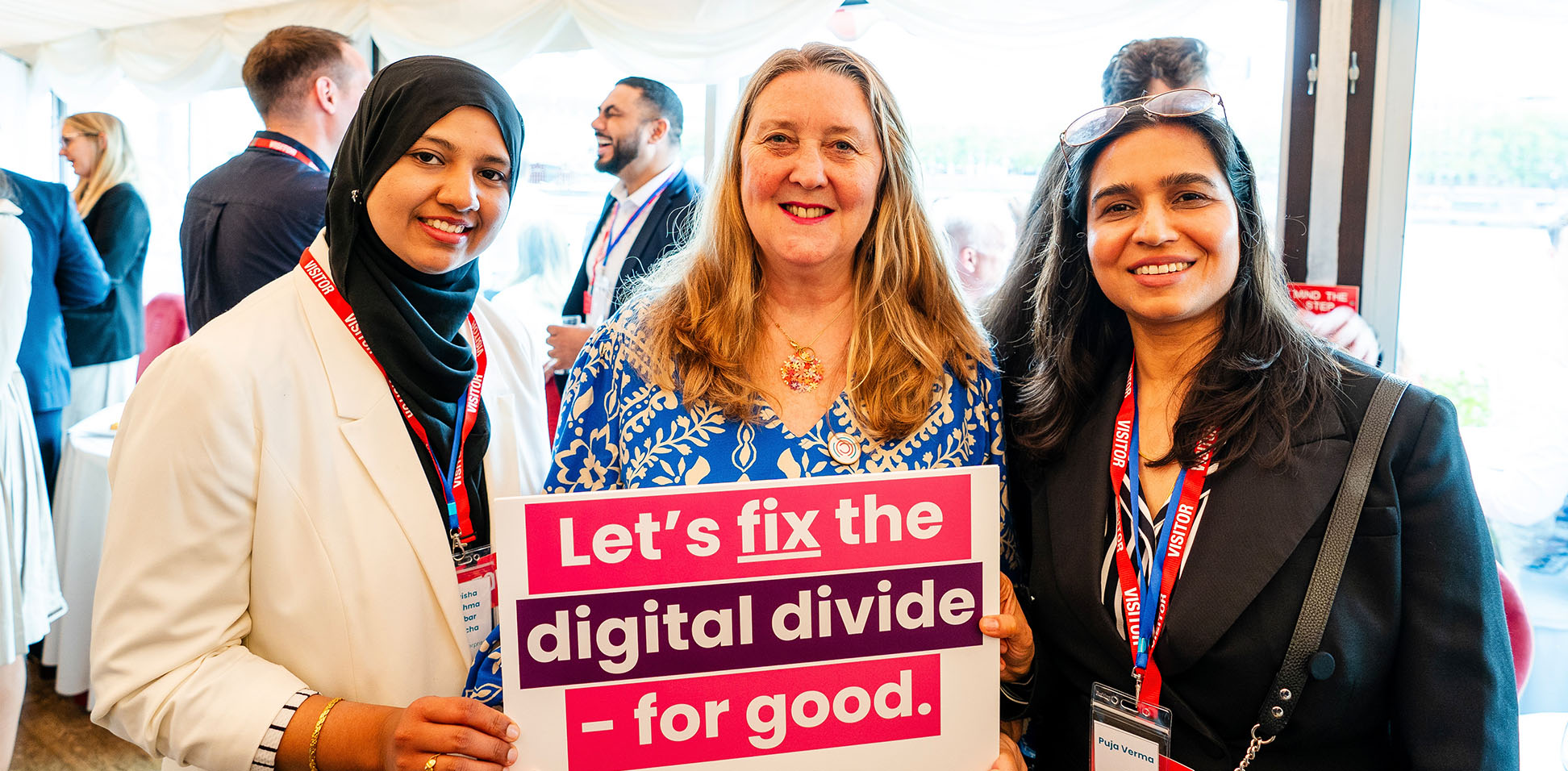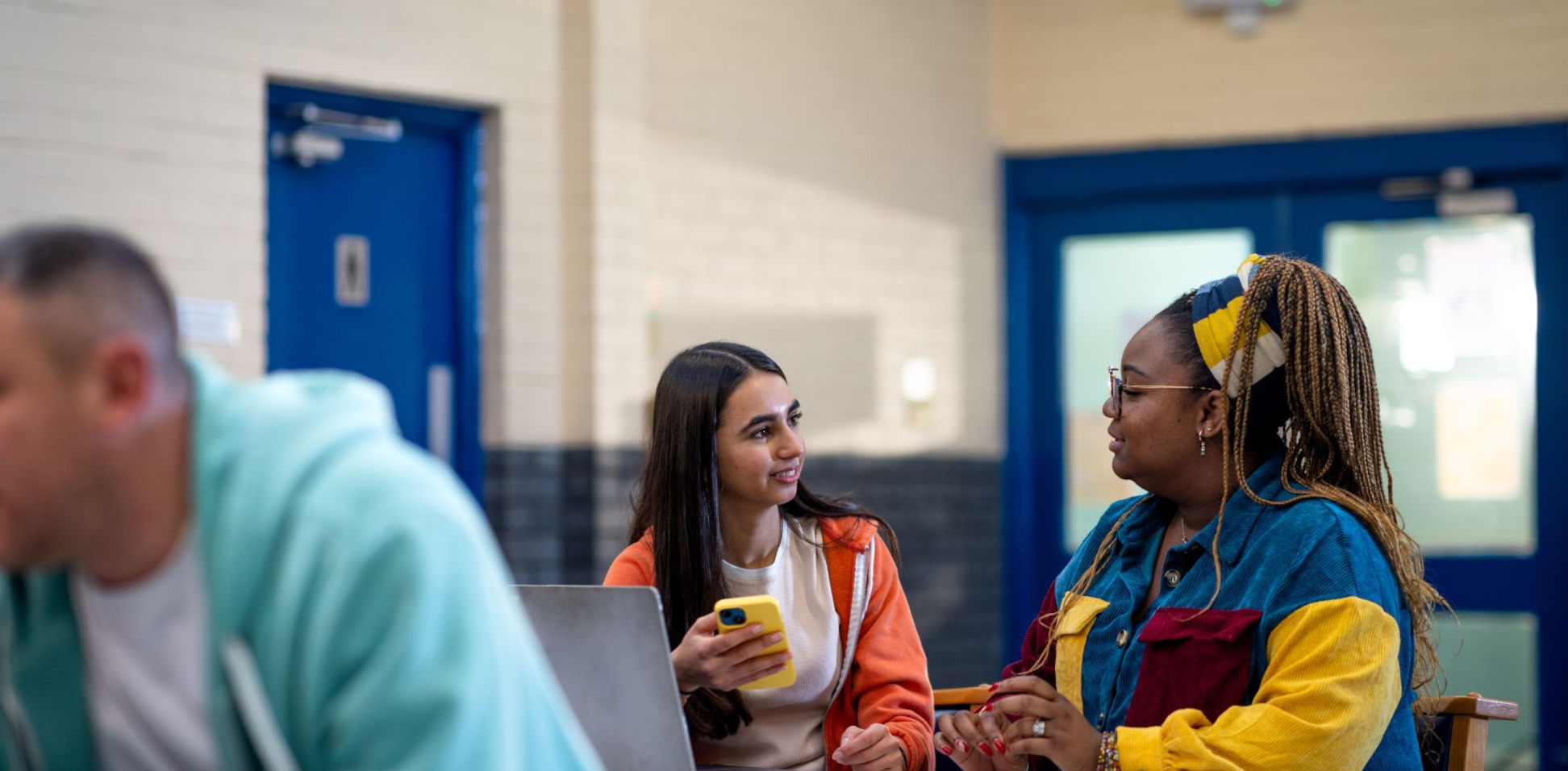The Spending Review ignored digital inclusion - here's why that's a huge mistake
In June, Rachel Reeves announced the 2025 Spending Review. Our Group CEO Helen Milner OBE reflects on why the Spending Review ignoring digital inclusion is a huge mistake.
A critical opportunity to secure our nation's future
The anticipation around the 2025 Spending Review was immense, not least for those of us championing a truly inclusive digital Britain. As we watched if the Chancellor could raise spending whilst sticking to her own fiscal rules, the feeling at Good Things was one of disappointment - and frankly, a deep concern. The Labour Government has missed a critical opportunity to secure our nation's future.
Despite bold pronouncements about economic growth, a tech-driven public sector, and a commitment to efficiency, stability, and opportunities for all, this Spending Review has a glaring blind spot: dedicated funding for digital inclusion.
It is a potentially fatal risk to invest heavily in a digital future - with billions of investment into Artificial Intelligence and the NHS App - yet neglect the steps needed to ensure every single person can participate in it. We cannot have a modern, prosperous Britain if millions are still locked out of the online world, unable to access essential services, participate in the modern economy, or connect with their communities.
The potential economic impact of digital inclusion
The government's focus on efficiency drives and stability is well-documented - and rightly so given the fiscal landscape. Yet it's ironic that digital inclusion, a proven driver of efficiency, stability, and economic return, seems to have been overlooked. Our research shows that for every £1 invested in digital skills and inclusion, there's a return of over £9 to the economy. Denying investment here isn't saving money, it's squandering a tangible opportunity for growth that could alleviate pressure on other strained areas. This isn't charity; it's smart economics.
Last month I outlined new suggestions for financing digital inclusion considering the government’s tight purse strings - so it’s not like there aren’t good ideas to create the society and economy we want.
A digitally literate and connected population
Consider the government's other vital priorities: transforming the NHS; creating a modern economy, with industry prosperous across the Nations; and building an opportunity society with skills and training for all. Each of these relies fundamentally on a digitally literate and connected population. How can we truly transform healthcare from analogue to digital if a significant portion of the population can't get online? How can we harness the power of AI, quantum computing, and advanced manufacturing if a substantial part of our workforce lacks essential digital skills? The digital divide isn't a peripheral issue. It's a bottleneck to progress across the entire public agenda.
Access to skills, devices, connectivity and support impact
Good Things Foundation and our National Digital Inclusion Network stand ready to deliver. We see every day the transformative impact that access to skills, devices, connectivity, and support has on individuals' lives – improving health, boosting employment prospects, and fostering social cohesion. But our work, and that of countless dedicated community organisations, needs sustained, strategic investment that is currently absent from this multiyear Spending Review.
Digital inclusion as a core national infrastructure
To build a truly inclusive and prosperous nation, digital inclusion must be recognised as a core national infrastructure. We urge this government to swiftly rethink this oversight. Failure to invest in digital inclusion now is not just a missed opportunity for the present, but a costly gamble on the future of every citizen and the long term health of our economy.


